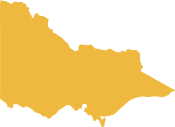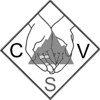Reconciliation
What is Reconciliation?
Reconciliation Australia, the lead body for reconciliation in Australia, describes reconciliation as being about strengthening relationships between Aboriginal and Torres Strait Islander peoples and non-Indigenous peoples for the benefit of all Australians. RA breaks their vision of reconciliation into five interconnected dimensions:
- Historical acceptance
- Race relations
- Equality and Equity
- Institutional Integrity
- Unity
Another perspective on reconciliation is the Uluru Statement for the Heart, a 2017 petition to the people of Australia written by delegates of the First Nations National Constitutional Convention. The Statement calls for structural reforms to address a powerlessness that has lead to severe disparities between Indigenous and non-Indigenous Australians. These reforms are often summarised as Voice, Treaty and Truth
CSV steps towards reconciliation
CSV understands the importance of strengthening relationships between Aboriginal peoples in Victoria and the climbing community. We have built on the principles of reconciliation discussed above to integrate the following key commitments into our program.
Acknowledge the past
We acknowledge that, for many years, we climbed in places with little to no knowledge of the cultural significance of them. In some cases this has caused damage or has been regarded as disrespectful by Traditional Owners.
We also acknowledge that colonisation, settlement and development have caused significant losses of tangible and intangible cultural heritage, some of which may be rediscovered progressively into the future.
Support Self-Determination
We respect that Traditional Owners have the best information to determine what is culturally significant to them and how cultural values should be protected. We support their right to make these decisions without explanation or justification.
Help to protect cultural values
We take steps to help the climbing community understand and respect any rules or restrictions put in place to protect cultural values and significant places.
Promote respect for Aboriginal peoples and cultures.
We make Aboriginal people welcome in our community, our organisation and activities.
We actively seek the input of Traditional Owners.
We show interest in learning about local Aboriginal heritage and culture.
We acknowledge Traditional Owners’ connections to country and pay our respect to their elders as a normal part of our activity.
Reconciliation Action Plan
Reconciliation Australia provides structured frameworks to organisations looking for guidance on how they can support reconciliation. CSV has developed a Reconciliation Action Plan based on these frameworks and this plan has been approved by Reconciliation Australia. It lists a number of formal commitments that we are required to report on annually. For more information on our RAP – see here
Treaty
Treaty is seen by many as the most significant and impactful step towards reconciliation that a government can take.
Whereas Native Title agreements focus on land rights, Treaty covers a broader range of issues including:
- Recognition of historic wrong-doings and current injustices
- Support for self-determination and self-government
- Health, education and economic development
- Support for revitalisation of culture, language and heritage
A Treaty is an agreement between states, nations or governments. The Victorian Government and the First Peoples’ Assembly of Victoria have started to scope a treaty process. In October 2022, both parties signed off on a Treaty Negotiation Framework and Self-Determination Fund. The Framework specifies who can enter Treaty negotiations, how negotiations are conducted and what subject matter can be covered. The Fund provides the resources to ensure that the negotiations are conducted on a fair basis.
The Framework has outlined the need for a Statewide Treaty covering statewide structures and systems of government and separate Traditional Owner Treaties for matters relating to Traditional Owners’ Country and Community.
Treaty negotiations are set to get underway in 2024. An independant body, The Treaty Authority, will facilitate and oversee the negotiations consistent with the Framework in a way that respects Aboriginal Lore, Law and cultural Authority.
https://www.firstpeoplesvic.org/wp-content/uploads/2022/06/fpav-treaty-info-pack-FA-june-2022.pdf


